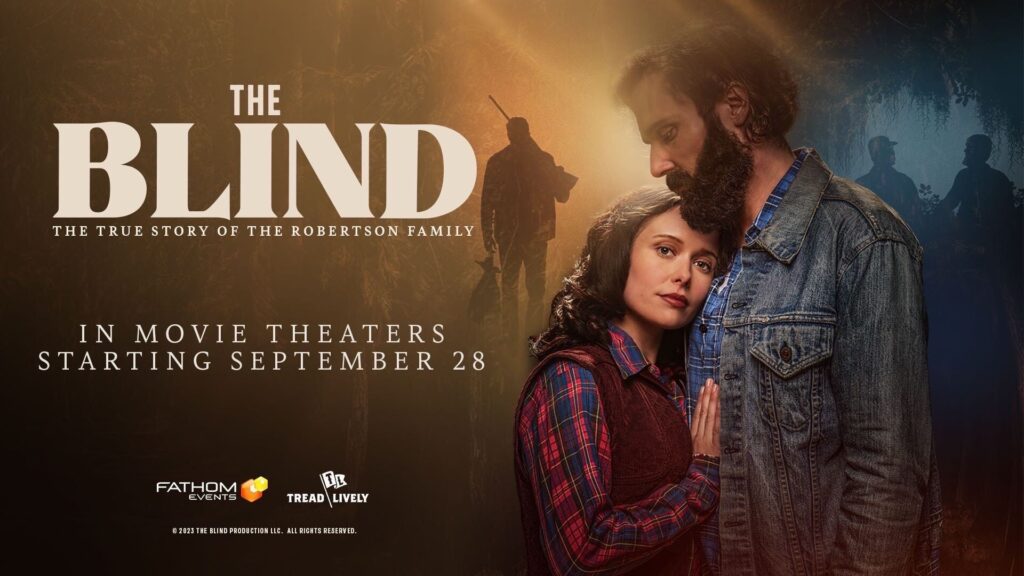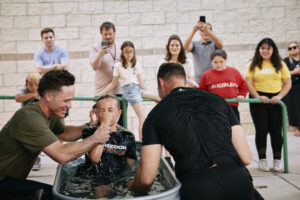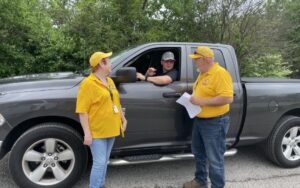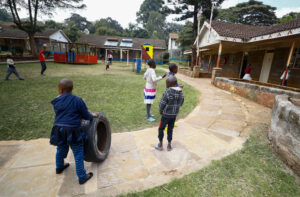
From 2012-2017, the reality TV series “Duck Dynasty” told many stories of the Robertson family and their duck-call and decoy business. “The Blind,” coming to theaters Sept. 28, tells the story of Phil Robertson’s life before he became a Christian.
Andrew Hyatt, director of the film, knew Duck Dynasty fans would love the original script, but he felt there was more to the story. After hearing Robertson’s powerful Christian testimony, Hyatt knew a film version of Robertson’s “redemption story” was the way to go.
At the time, the world was coming out of COVID-19 and “people were just really struggling to find purpose,” Hyatt said.
He asked the Robertsons if they were “willing to dive a little deeper into some of maybe the grittier, harder things” he thought the audience would identify with.
Robertson’s narrative is down to earth: He grew up in extreme poverty; his mother had mental health issues; his father often had to leave home to work. As a child, Robertson frequently was the head of the family.
The duck calls for which he later became famous were a byproduct from hunting simply to feed his siblings, starting at about 7 years old.
‘Our story’
But it isn’t just poverty that can help a viewer relate to the film — it’s how Robertson reacted to drugs, alcohol, anger and giving up.
Hyatt also can relate to what Robertson experienced. Though he grew up in the Christian faith, he also walked away from God and was familiar with addiction, abuse, drugs and alcohol.
“It’s like this is my story, this is our story,” Hyatt said. “We feel what this family’s going through because it’s either our family or we know somebody going through it.”
Also, like Robertson, Hyatt knows that “only by the grace of God” did he come through.
The Robertson family supported the project from the beginning.
“If this film and people hearing my story can help, then go ahead,” Robertson told Hyatt.
According to the IMDb Parents Guide, the movie is rated PG-13 for “thematic content and smoking,” and there are scenes with realistic portrayals of drinking, being drunk and verbal and physical abuse.
Including those scenes were decisions Hyatt and the family made purposefully, feeling it necessary to show what really happened — even if it could potentially keep some people from seeing the film.
Realities of life
“I think it’s important that we as storytellers and the church don’t shy away from those [kinds of issues],” Hyatt said, “because with my stories in particular, I would never want someone to see these characters and feel like, ‘See? They don’t get me. My life is a mess. My life is way worse than this, so I don’t think there’s anything here for me.’”
Instead, he wants the audience to say, “Wow! Look at this guy. He was a mess like me, and look what Christ has done in his life.”
Though not suitable for young children, the film is not just for those with the same issues Robertson had.
“If you’re struggling to find a connecting point with [your teenagers] as far as their faith and bigger conversations about that, I think this is one of the best films that you could all go see together,” Hyatt said. “I think that it will bring up a lot of great conversations about faith, journey and purpose.”
The takeaway from “The Blind” is that nobody is too far gone for God to redeem, Hyatt added.
“Even people you think are so lost — I think you would have thought that about Phil had you known him back then in his worst moments. I think it would have been very easy to write him off and say, ‘Nope. There’s no hope for that guy. He’s done.’”
Prayer
The movie also shows the power of prayer.
Robertson’s sister, Jan, prayed for him every day, continuing to tell people, “If Phil Robertson converts, finds Jesus, he will convert thousands. That’s just his personality. That’s who God created him to be.”
“That was such a good reminder for me,” Hyatt said. “I can look at someone and judge them and say, ‘That person’s a complete mess. Wow! I guess it’s not going to work out for them.’
“I now remind myself in my daily life when I look at people, ‘Nobody’s too far gone, no matter where they’re at.’
“That’s probably a good reminder for all of us.”
This article originally appeared in The Alabama Baptist.
















